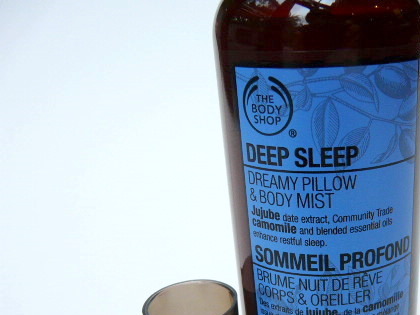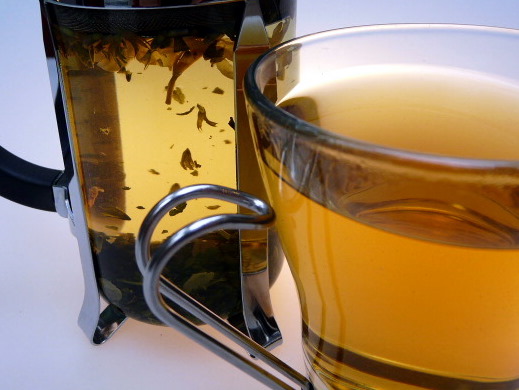- Home
- Blog
- Energy Boosters
- Getting a good night's sleep in 9 easy ways
Getting a good night's sleep in 9 easy ways
Written by Catherine Saxelby
on Friday, 28 November 2008.
Tagged: alcohol, caffeine, exercise, healthy lifestyle, sleep

Having trouble drifting off at night? Are you lying awake in bed watching the digital clock tick over or madly trying to count sheep? Or do you fall asleep only to be wide-eyed at 3am? Here Catherine Saxelby offers nine ways to help you get the energising health benefits from a good night's sleep.
Lack of sleep leads to many health problems
Apart from leaving you tired and irritable, it can:
- lower your immunity
- make your memory poorer
- reduce productivity and
- worsen insulin resistance (which sets the scene for weight problems and type 2 diabetes).
How much do you need?
While seven to eight hours sleep is what's usually recommended, there are many people who only need six or seven hours to feel fine. Whatever your sleep needs, you should have enough quality sleep to wake up feeling refreshed, alert and energised the next morning. Before you get a prescription for sleeping tablets, try one or two of these nine simple tips first.
1. Avoid alcohol or keep it moderate
Many believe that a bedtime nightcap helps them relax, feel drowsy and nod off to sleep but in fact, it actually reduces the quality of sleep, giving a fragmented, fitful sleep. Too much may wake you up in the middle of the night and send you off to the toilet, because of alcohol's action as a diuretic. So enjoy one or two drinks a night - but no more.
2. No big meals at night
Don't overindulge late in the evening with a heavy meal. A full stomach needs a couple of hours to digest and interferes with a relaxing sleep. On the other hand, a light snack before bedtime helps some people doze off. Suggestions include a glass of warm milk, cheese and cracker biscuits, stewed or canned fruit with yoghurt, a piece of toast with honey or jam or a small bowl of cereal with milk.
3. Skip caffeine after 4 pm
Caffeine is a stimulant, well-known for its ability to keep the mind alert and switched on. This doesn't mean never sipping a cappuccino again - all you need to do is to skip coffee, tea, cocoa or energy drinks with guarana (a source of caffeine) in the late afternoon or evening. And especially just before bed! Check out how much caffeine is too much.
4. Exercise
Be active over your day so you are physically tired at night. Walking in the fresh air is particularly beneficial but any form of activity including swimming, dancing, cycling, tennis or yoga is fine. However don't do any strenuous activity in the two hours before bed.
5. Unwind with lavender
Light a burner with lavender oil or slip into a warm bath with lavender or sprinkle a few drops onto a tissue under your pillow.
6. Go to bed at roughly the same time each night
A regular time for sleep works with your body's internal "clock" and gets you into a natural pattern. Your body knows when to wind down and when to wind up in the morning. Travelling across time zones or varied work shifts interferes with this natural sleep time and can leave you out of kilter with your sleep.
7. Positive relaxation
In the hour before you go to bed, don't do work. Do things to relax and unwind - take a bath with aromatherapy oils, listen to soft music, read a good book. Do relaxation exercises like Tai Chi or yoga or deep breathing with long stretches. Meditate on a peaceful place you have been to or a happy time in your life. Write a to-do list of things for tomorrow so you don't worry about them over the night. Avoid watching the late night news or listening to loud music.
8. Cool and dark
Make sure your bedroom is dark, quiet and at the right temperature. It's better to sleep in a cooler room than to be overheated and have fitful sleep.
9. A glass of warm milk?
Many people swear by milk before bed. They believe it acts as a "sedative" or sleep-inducer, possibly due to its tryptophan, a component of protein, which is converted into serotonin, a "calming" chemical. No one knows for sure if this is the full explanation or if it's merely psychological but if it works for you, it's worth doing. And it will boost your calcium at the perfect time - calcium uptake by bones peaks during the night.
2 things that help me sleep
I don't sleep that well when I'm stressed or in the middle of a big project - like writing a new book! Here are two products that help me get to sleep and stay asleep all night long (no point falling asleep only to wake in the middle of the night and lie there!)

1. I like to spray a few mists of aromotherapy oil on a tissue then place it on top of my bedside lamp. The heat from the globe gently evaporates the oil, releasing its fragrance into the room.
Or you can just tuck the tissue under your pillow. Easy.

2. I sip a small (not large) cup of soothing herbal tea before I hit the bed.
Something nice like a blend of chamomile, lemongrass and valerian. No caffeine, of course.
Save
You may also be interested in...
Foodwatch
The Good Stuff
The Boring Stuff
© 2025 Foodwatch Australia. All rights reserved
Website by Joomstore eCommerce









